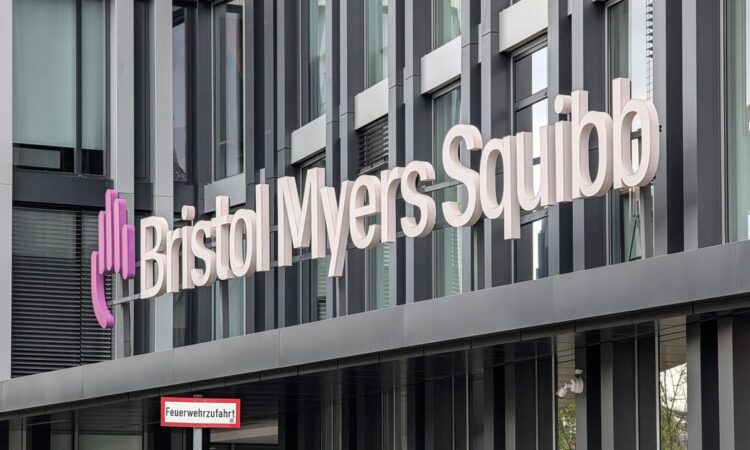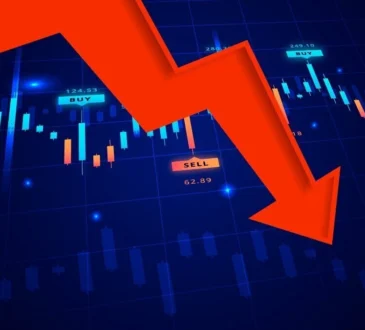
Global Biopharmaceutical Company Bristol Myers Squibb is in Munich, Upper Bavaria, Bavaria, Germany, on April 13, 2025. (Photo by Michael Nguyen/NurPhoto via Getty Images)
NurPhoto via Getty Images
Bristol-Myers Squibb (NYSE: BMY) has considerably lagged behind the overall market, with its stock decreasing by 20% this year, while the S&P 500 index has risen by 14%. This drop can be attributed in part to recent challenges in the company’s drug pipeline, including underwhelming late-stage results for its cardiovascular treatment, Camzyos, as well as its schizophrenia medication, Cobenfy.
In spite of these difficulties, the fundamental question is whether BMY’s 20% decline in stock price represents a buying opportunity. We believe it does, and we find the stock appealing at its current price of $45. Our assessment is founded on an evaluation of BMY’s current valuation when juxtaposed with its recent operating performance and historical financial soundness. We examined Bristol-Myers Squibb concerning crucial metrics: Growth, Profitability, Financial Stability, and Downturn Resilience. Although the company’s operational and financial status is moderate, its presently low valuation renders the stock especially attractive, as outlined in the following analysis.
That said, if you are looking for potential gains with less volatility than owning an individual stock, consider the High Quality Portfolio. It has consistently surpassed its benchmark—a combination of the S&P 500, Russell, and S&P MidCap indexes—and has realized returns that have exceeded 91% since its inception. What accounts for this? Collectively, HQ Portfolio stocks yielded superior returns with reduced risk compared to the benchmark index; it offered less volatility, as demonstrated in HQ Portfolio performance metrics.
How Does Bristol Myers Squibb’s Valuation Look vs. The S&P 500?
Based on price per dollar of sales or profit, BMY stock appears inexpensive relative to the broader market.
- Bristol Myers Squibb has a price-to-sales (P/S) ratio of 1.9 compared to a figure of 3.3 for the S&P 500
- Moreover, the company’s price-to-free cash flow (P/FCF) ratio stands at 7.0 in contrast to 21.1 for the S&P 500
- It also possesses a price-to-earnings (P/E) ratio of 16.9 as opposed to the benchmark’s 24.0
How Have Bristol Myers Squibb’s Revenues Grown Over Recent Years?
Bristol Myers Squibb’s Revenues have displayed variable growth in recent years.
- Bristol-Myers Squibb has experienced its top line grow at an average rate of 0.5% over the last 3 years (compared to an increase of 5.3% for the S&P 500)
- Its revenues have increased by 4.6% from $46 Bil to $48 Bil in the past 12 months (versus a growth of 5.1% for the S&P 500)
- Furthermore, its quarterly revenues dropped by 5.6% to $11 Bil in the most recent quarter from $12 Bil a year ago (as opposed to a 6.1% growth for the S&P 500)
How Profitable Is Bristol-Myers Squibb?
Bristol-Myers Squibb’s profit margins are superior to those of most companies within the Trefis coverage universe.
Does Bristol-Myers Squibb Look Financially Stable?
Bristol-Myers Squibb’s balance sheet appears solid.
- Bristol-Myers Squibb’s Debt figure was $51 Bil at the close of the most recent quarter, while its market capitalization stands at $92 Bil (as of 9/21/2025). This suggests a moderate Debt-to-Equity Ratio of 55.8% (compared to 21.0% for the S&P 500). [Note: A low Debt-to-Equity Ratio is preferable]
- Cash (including cash equivalents) constitutes $12 Bil of the $92 Bil in Total Assets for Bristol-Myers Squibb. This results in a strong Cash-to-Assets Ratio of 12.7% (compared to 7.0% for the S&P 500)
How Resilient Is BMY Stock During A Downturn?
BMY stock has experienced a slightly worse impact than the benchmark S&P 500 index during some recent downturns. Concerned about the effect of a market crash on BMY stock? Our dashboard – BMY Lost 6.7% In A Month. Do You Buy Or Wait? – provides an in-depth analysis of how the stock fared during and after prior market crashes.
Inflation Shock (2022)
- BMY stock declined 40.2% from a peak of $81.13 on December 2, 2022, to $48.48 on November 21, 2023, in contrast to a peak-to-trough decrease of 25.4% for the S&P 500
- The stock is still not back to its pre-Crisis high
- The highest the stock has attained since then is 63.11 on March 10, 2025, and it currently trades around $45
COVID-19 Pandemic (2020)
- BMY stock decreased 31.2% from a high of $67.43 on January 21, 2020, to $46.40 on March 23, 2020, compared to a peak-to-trough decline of 33.9% for the S&P 500
- The stock completely recovered to its pre-Crisis peak by July 12, 2021
Global Financial Crisis (2008)
- BMY stock fell 46.3% from a high of $32.14 on July 17, 2007, to $17.26 on October 16, 2008, compared to a peak-to-trough drop of 56.8% for the S&P 500
- The stock fully regained its pre-Crisis peak by October 5, 2011
Putting All The Pieces Together: What It Means For BMY Stock
In conclusion, Bristol-Myers Squibb’s performance across the metrics discussed above can be summarized as follows:
- Growth: Inconsistent
- Profitability: Strong
- Financial Stability: Strong
- Downturn Resilience: Moderate
- Overall: Moderate
While BMY stock has been underperforming recently, think about looking into the Trefis Reinforced Value (RV) Portfolio, which has surpassed its all-cap stocks benchmark—a mix of the S&P 500, S&P Mid-Cap, and Russell 2000 benchmark indices. This portfolio has proven beneficial for investors due to its quarterly rebalanced mix of large-, mid-, and small-cap stocks, which responds effectively to diverse market conditions. This strategy allows it to take advantage of favorable market trends while reducing losses during downturns, as demonstrated in the RV Portfolio’s performance metrics.
The Bottom Line
In general, Bristol-Myers Squibb has a moderate performance across significant metrics, but its current valuation seems low. The stock is trading at only 1.9 times trailing revenues, considerably below its five-year average of 2.9 times. This valuation is also lower than some of its competitors, with Merck at 3.2 times and Johnson & Johnson at 4.7 times trailing revenues. See – Bristol Myers Squibb’s valuation compared to its peers. Given this appealing valuation, we consider BMY to be a worthwhile investment.
Nevertheless, we could be mistaken in our judgment, and investors may hesitate to pay a higher multiple due to recent pipeline challenges. Even so, we believe these apprehensions are already factored into the stock price. The company has a robust pipeline, and its recent acquisitions could offer considerable upside. For example, the company acquired 2seventy Bio earlier this year to take full control of their collaboratively developed CAR-T cell therapy – Abecma – for multiple myeloma. Additionally, Bristol-Myers Squibb is co-developing an antibody with BioNTech aimed at small-cell lung cancer. This promising medication has shown positive results in mid-stage clinical trials and possesses a potential peak sales value exceeding $5 billion. In our estimation, the promise of these new advancements outweighs the current pipeline setbacks, making the stock’s low valuation particularly enticing.



